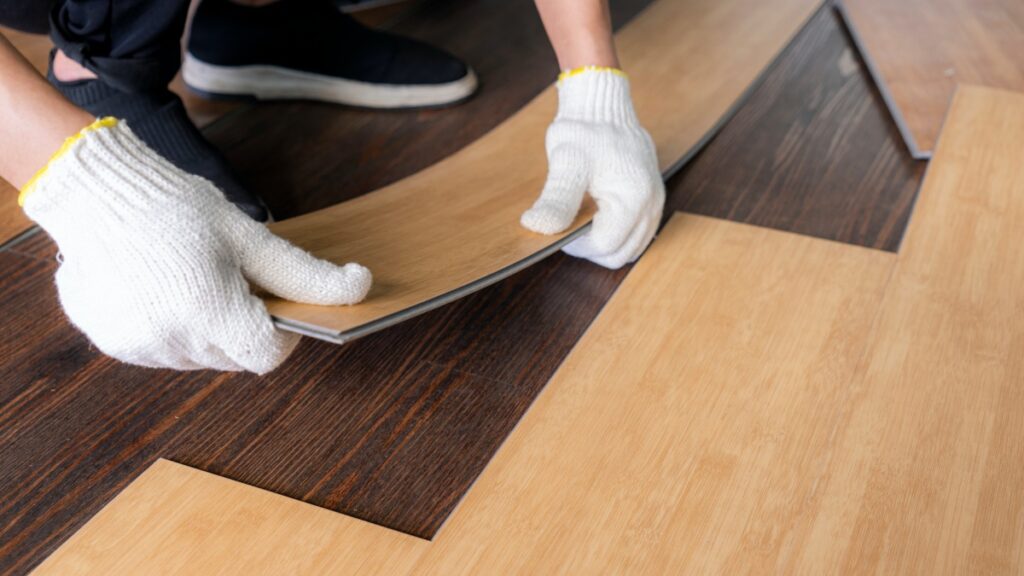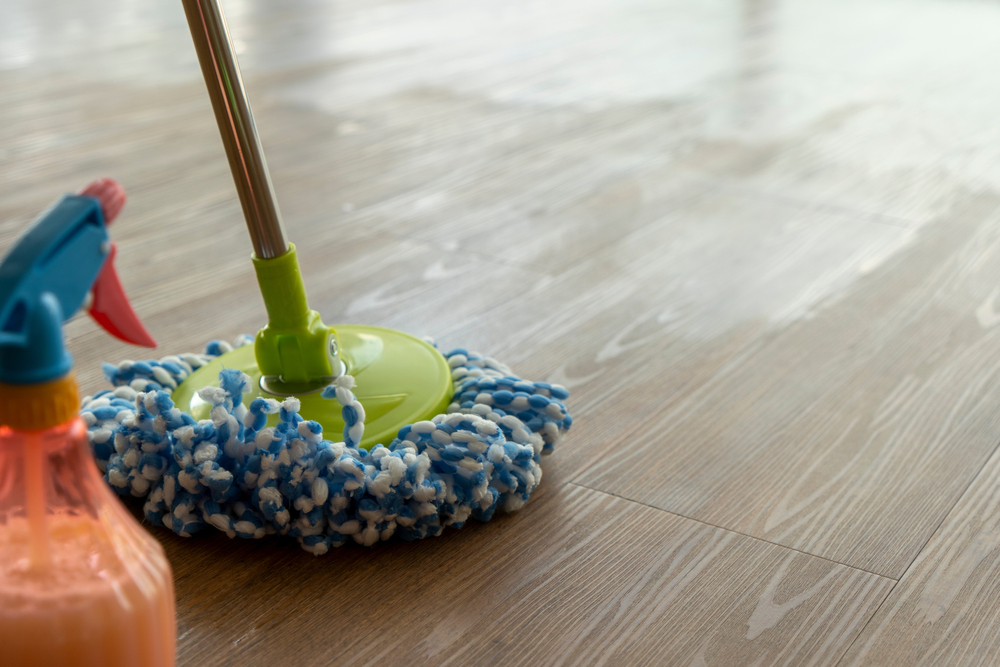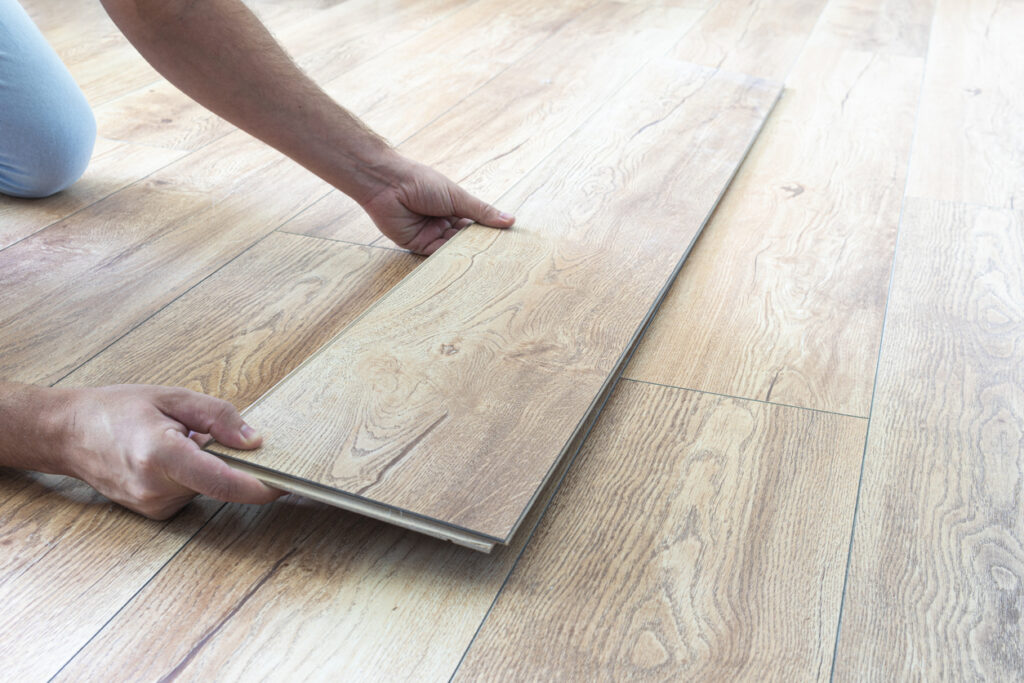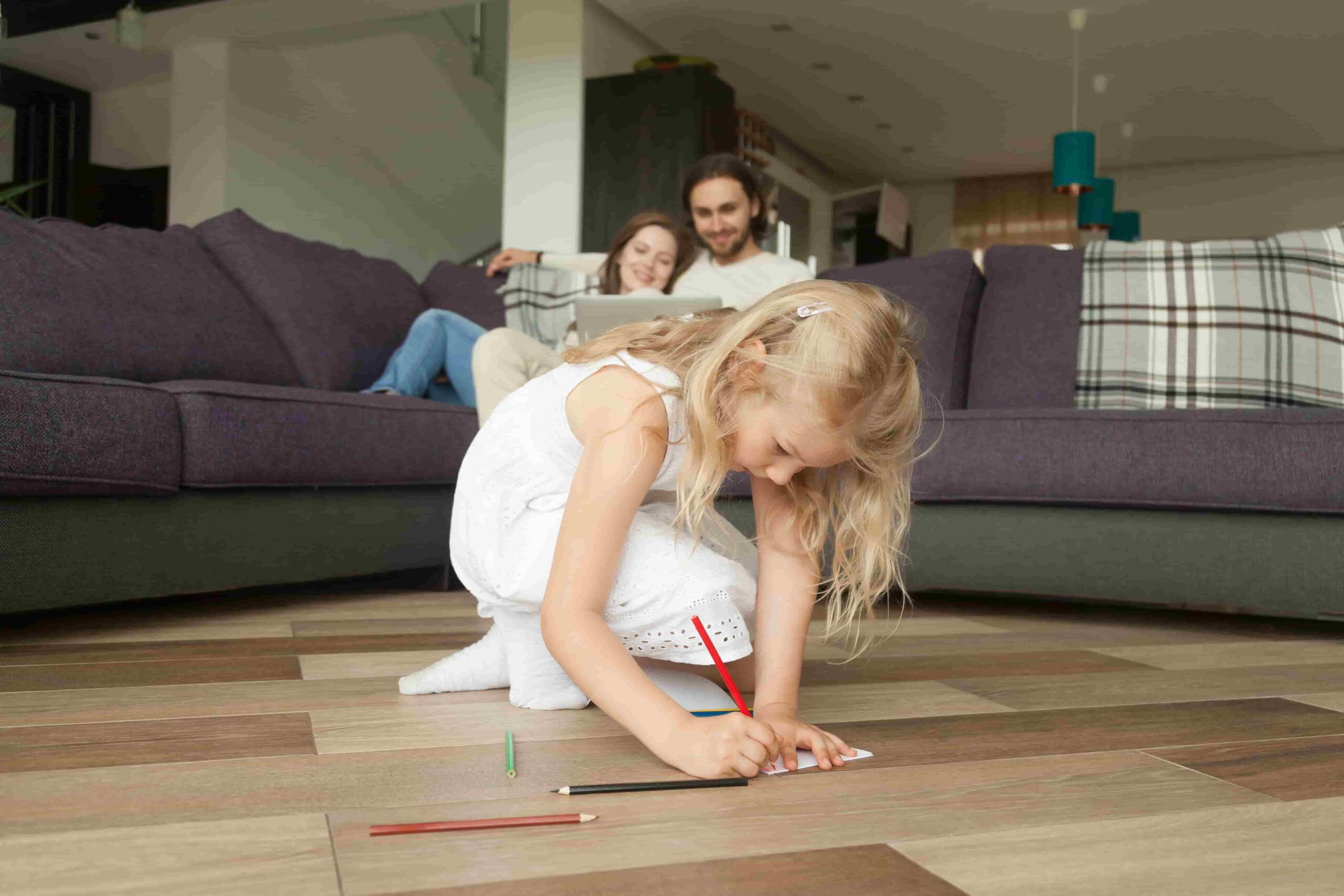Vinyl sheet flooring, a popular choice among homeowners, offers a combination of durability, aesthetic appeal, and cost-effectiveness. One of the critical aspects to consider when choosing this type of flooring, however, is its lifespan.
This guide will delve into the lifespan of vinyl sheet flooring, providing comprehensive insights into factors that affect its durability, ways to enhance longevity, and what to expect from your flooring over time.
Vinyl sheet flooring has gained significant popularity due to its versatility and practicality. It is widely used in various residential and commercial settings, including kitchens, bathrooms, and high-traffic areas, mainly due to its resistance to water and stains.
This type of flooring is also favored for its wide range of designs and textures, mimicking more expensive materials like hardwood and stone, providing homeowners with high aesthetic value at a fraction of the cost.
Moreover, vinyl sheet flooring is often chosen for its comfort underfoot and noise-reduction properties, making it a suitable choice for homes with children or pets. Its ease of installation and maintenance further contributes to its widespread use and popularity.
Lifespan of Vinyl Sheet Flooring
The general lifespan of vinyl sheet flooring largely depends on its quality and how well it is maintained. High-quality, well-maintained vinyl flooring can last anywhere between 10 to 20 years.
Lower-quality vinyl, or vinyl that is subject to high traffic and heavy use without proper care, may need to be replaced after as little as 5 years. However, with moderate use and regular maintenance, most homeowners find that their vinyl flooring lasts comfortably within the 10 to 15-year range.
It’s also worth noting that vinyl flooring may show signs of wear over time, such as scratches or discoloration, especially in high-traffic areas. These signs of wear do not necessarily indicate a need for replacement but may affect the appearance of the flooring.
Factors influencing the life of vinyl sheet flooring
1. Quality of the Material

The quality of the vinyl sheet flooring is a critical factor that influences its lifespan. High-quality vinyl is thicker and more durable, resisting tears, scratches, and stains better than its lower-quality counterparts.
Moreover, high-quality vinyl may feature enhanced surface treatments that add extra layers of protection to the material, thereby extending its lifespan.
2. Installation Method
Another key determinant in the lifespan of vinyl sheet flooring is the installation method. When the installation is done professionally and correctly, the flooring adheres properly to the subfloor and is less prone to peeling or cracking.
On the contrary, subpar installation can lead to issues such as bubbling or curling at the edges, which can shorten the life of the flooring.
3. Level of Traffic
The level of foot traffic the vinyl sheet flooring endures directly impacts its lifespan. Areas with high traffic, such as hallways or commercial spaces, may see a faster wear and tear, leading to a reduced lifespan.
However, in areas with moderate or low foot traffic, such as bedrooms, the lifespan of vinyl sheet flooring can be significantly extended.
4. Maintenance Practices
The lifespan of vinyl sheet flooring is also greatly influenced by maintenance practices. Regular cleaning and proper care can prevent dirt accumulation and stains, which can otherwise degrade the material over time.
Additionally, immediate attention to spills or scratches can prevent further damage and prolong the life of the flooring.
Maintenance and Care

To extend the lifespan of vinyl sheet flooring, following a proper maintenance routine is crucial. Here are some tips that can help:
1. Regular Cleaning
Regular cleaning is the first and foremost step in maintaining the lifespan of vinyl sheet flooring. This involves sweeping or vacuuming to remove loose dirt and debris that can scratch the surface. It is advisable to use a soft broom or a vacuum cleaner without a beater bar to prevent surface damage.
2. Using Vinyl-Safe Cleaners
Not all cleaning products are safe for vinyl floors. Some can be harsh and damage the protective coating, thereby shortening the lifespan of vinyl sheet flooring. Always use a cleaner specified as safe for vinyl floors. And remember, when it comes to cleaning solutions, less is often more.
3. Prompt Spill Management
Spills should be cleaned up immediately to prevent staining and potential damage to the vinyl sheet flooring. Prolonged contact with liquids can seep into the seams of the flooring, causing it to warp or lose its adhesive bond with the subfloor.
4. Employing Protective Measures
Use floor protectors under furniture legs to prevent scratching and indentation. Also, consider using doormats at entrances to minimize the amount of dirt and grit brought onto the vinyl sheet flooring.
5. Avoiding Excessive Sunlight
Excessive sunlight can cause discoloration and reduce the lifespan of vinyl sheet flooring. Using curtains or blinds to control the amount of direct sunlight hitting the floor can help maintain its vibrant color and durability.
Do’s and Don’ts for Vinyl Sheet Flooring Longevity
Do’s
Do use vinyl-safe cleaners: Always ensure that the cleaning products you use are designed for vinyl floors. Harsh cleaning products can damage the protective coating on vinyl floors.
Do manage spills immediately: Prompt cleanup of spills can prevent potential damage or staining of your vinyl flooring.
Do use floor protectors: Using protectors under furniture legs can prevent scratching and indentation on your vinyl flooring.
Do use doormats: Placing doormats at entrances can help reduce the amount of dirt and grit brought onto your vinyl flooring.
Do control sunlight exposure: Use curtains or blinds to manage the amount of direct sunlight hitting your floor, as excessive sunlight can cause discoloration and reduce the lifespan of your vinyl flooring.
Don’ts
Don’t use abrasive cleaners: Avoid using harsh cleaning products that aren’t designed for vinyl floors, as they can damage the protective coating.
Don’t ignore spills: Leaving spills unattended can lead to staining and potential damage to your vinyl flooring.
Don’t drag furniture: Moving furniture without protective measures can cause scratches and indentation on your vinyl flooring.
Don’t leave dirt unattended: Allowing excess dirt and grit to accumulate can scratch and damage your flooring.
Don’t allow excessive sunlight: Leaving your vinyl floors exposed to excessive sunlight can cause discoloration and reduce its lifespan.
Related Topics:
Signs of Aging and When to Replace

Discoloration:
One of the most apparent signs of aging in vinyl flooring is discoloration. Over time, exposure to sunlight, spills, and general wear can lead to fading or yellowing. If your vinyl flooring is showing significant color change, it may be time to consider replacement.
Indentations and Tears:
High-traffic areas are prone to wear, leading to indentations or even tears in the vinyl flooring. This is especially common in areas where furniture is frequently moved. Deep scratches and tears not only detract from the aesthetics but can also harbor dirt and bacteria.
Seam Separation:
Over time, the seams between vinyl sheets may start to separate, creating gaps. These separations can allow moisture to seep underneath, fostering mold growth and damaging the subfloor.
Curling Edges:
The corners and edges of the vinyl flooring may start to curl upwards, a phenomenon known as ‘peaking.’ This often occurs due to moisture exposure, temperature fluctuations, or simply old age.
Stubborn Stains:
Persistent or stubborn stains that resist all cleaning attempts can also be a sign of aging in vinyl flooring. Over years of use, the protective coating of the vinyl wears down, making it more susceptible to staining.
Circumstances under which replacement is necessary
Extensive Damage:
When the damage to the vinyl flooring extends beyond a few small areas, it may be more cost-effective and aesthetically pleasing to replace the entire floor. This could be due to severe discoloration, large-scale tears, or indentations that compromise the look and hygiene of your space.
Persistent Moisture Problems:
If your vinyl flooring constantly battles moisture issues due to underlying problems like leaks, plumbing issues, or high humidity, it may start to peel or buckle. Persistent moisture can also lead to mold growth, a serious health hazard, making replacement necessary.
Outdated Appearance:
Aesthetics play a significant role in home and office environments. If your vinyl flooring has an outdated pattern or color that no longer fits the style of your space, you might want to consider replacement to update the look and feel of your interior.
Planning to Sell The Property:
If you’re planning to sell your property, old or damaged vinyl flooring might decrease the property’s value. A fresh, modern vinyl floor can enhance your property’s appeal to potential buyers.
Installation Issues:
If your vinyl flooring is not installed properly, it could lead to numerous problems like curling edges, seam separations, and persistent gaps. In this case, replacement is not just necessary, but crucial to prevent further damage to your subfloor.
Conclusion
So, the lifespan of vinyl sheet flooring depends largely on the quality of the material, the professionalism of the installation, the level of foot traffic, and the maintenance practices employed.
With proper care, high-quality vinyl sheet flooring can last between 10 to 20 years, providing a durable, cost-effective, and aesthetically pleasing solution for various residential and commercial settings.
However, factors such as extensive damage, persistent moisture problems, outdated appearance, intent to sell the property, or installation issues might necessitate a replacement earlier.
Understanding the lifespan of vinyl sheet flooring and the factors affecting it can greatly assist property owners in making informed decisions about their flooring choices and maintenance practices.
FAQs
How can I extend the lifespan of my vinyl sheet flooring?
Regular maintenance is key. This includes sweeping or vacuuming regularly to prevent dirt and grit from scratching the surface, wiping spills promptly to prevent stains, and using appropriate cleaners recommended by the manufacturer. Additionally, using furniture pads can help prevent dents and scratches caused by heavy furniture.
Is vinyl sheet flooring suitable for high-traffic areas?
Yes, high-quality vinyl sheet flooring is designed to withstand heavy foot traffic, making it an ideal choice for commercial settings or busy areas in a home. However, its durability will be dependent on the quality of the product and the properness of the installation.
Can vinyl sheet flooring be installed over existing floors?
In many cases, yes. Vinyl sheet flooring can be installed over concrete, hardwood, and even existing vinyl or linoleum. However, the existing surface must be smooth, clean, and free from significant damage. If the current floor is uneven or has moisture problems, those issues should be addressed before installing the new vinyl floor.


1 thought on “A Guide to How Long Does Vinyl Sheet Flooring Last”